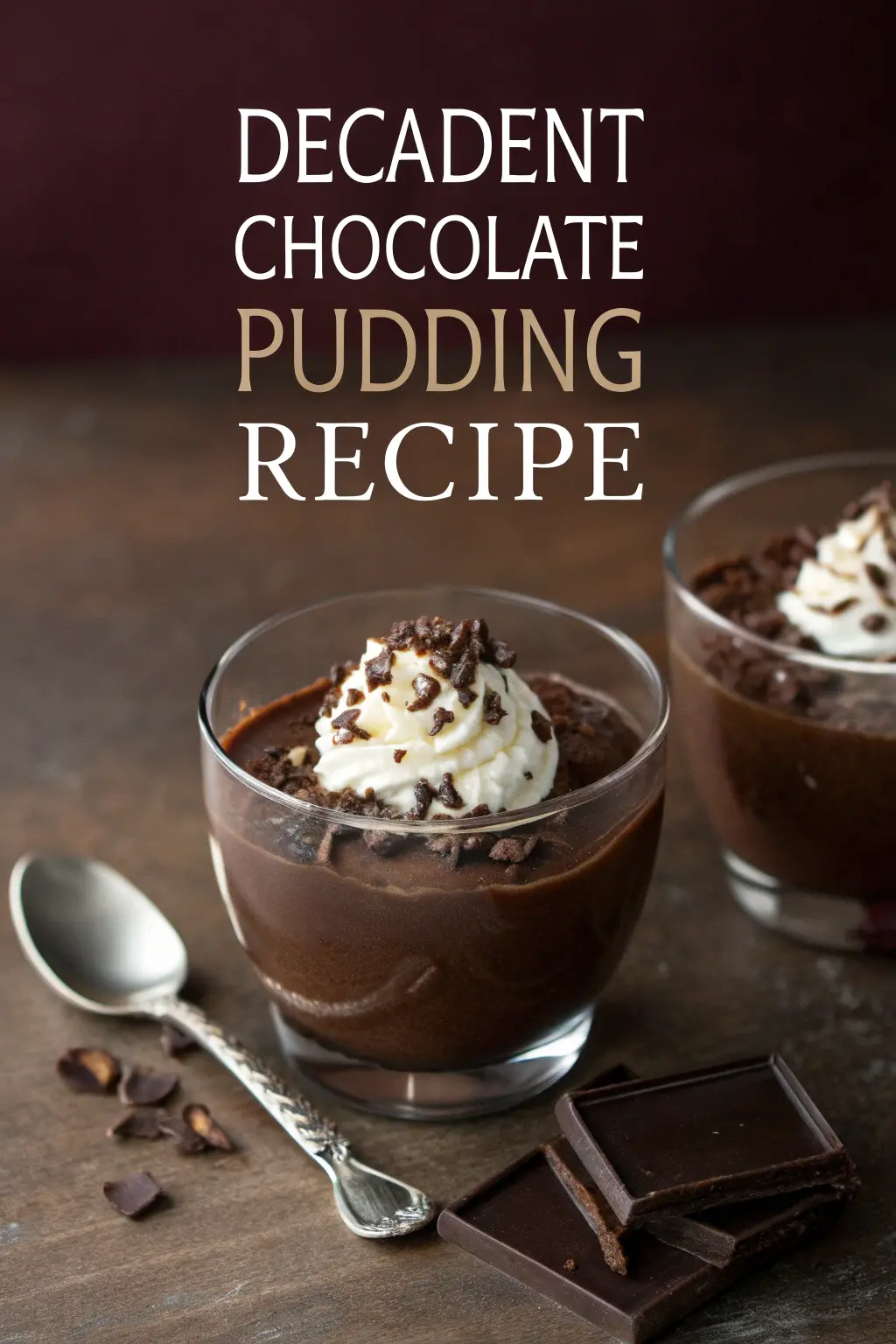Chocolate pudding is a timeless dessert that satisfies any sweet tooth with its rich, creamy, and indulgent flavor. Perfect for a cozy night in, as a dessert after dinner, or layered in parfaits, this decadent chocolate pudding is smooth, velvety, and deeply chocolaty. Making it at home is simple and far more satisfying than store-bought versions.
Ingredients
- 2 1/2 cups (600ml) whole milk
- 1/2 cup (100g) granulated sugar
- 1/3 cup (35g) unsweetened cocoa powder
- 3 tablespoons cornstarch
- 1/4 teaspoon salt
- 3 large egg yolks
- 2 tablespoons unsalted butter
- 1 teaspoon pure vanilla extract
- Optional: whipped cream or chocolate shavings for topping
- Durability and Style – This lastest Howork stand mixer equips with 660W high performance pure copper…
- 6.5Qt Food Grade Bowl with handle – 6.5QT stainless steel mixing bowl provides enough capacity to ma…
- 10+Pulse Speed Settings – 10 speeds for nearly any task or recipe.The powerful performance of planet…
Preparation Steps
Step 1: Mix Dry Ingredients
- In a medium saucepan, combine sugar, cocoa powder, cornstarch, and salt.
Step 2: Add Milk and Egg Yolks
- Gradually whisk in 2 cups of milk and the egg yolks until smooth.
- Add the remaining 1/2 cup of milk and stir well to ensure no lumps.
Step 3: Cook the Pudding
- Place the saucepan over medium heat.
- Cook, stirring constantly, until the mixture thickens and begins to boil, about 5–7 minutes.
- Remove from heat once thick and glossy.
Step 4: Add Butter and Vanilla
- Stir in butter and vanilla extract until fully incorporated for a rich, silky finish.
Step 5: Chill the Pudding
- Pour the pudding into individual serving dishes or a large bowl.
- Cover with plastic wrap, pressing it directly onto the surface to prevent a skin from forming.
- Refrigerate for at least 2 hours until set and chilled.
Step 6: Serve
- Top with whipped cream, chocolate shavings, or fresh berries for extra indulgence.
- Enjoy as a rich, creamy dessert perfect for any occasion.
Tips for Perfect Chocolate Pudding
- Stir constantly while cooking to prevent lumps.
- Use high-quality cocoa powder for the best chocolate flavor.
- For an extra creamy pudding, replace part of the milk with cream.
This decadent chocolate pudding is rich, creamy, and full of chocolatey goodness—a simple yet luxurious dessert that will satisfy chocolate lovers every time.
Have you given our recipe a try?
0.0
0.0 out of 5 stars (based on 0 reviews)
Excellent0%
Very good0%
Average0%
Poor0%
Terrible0%
